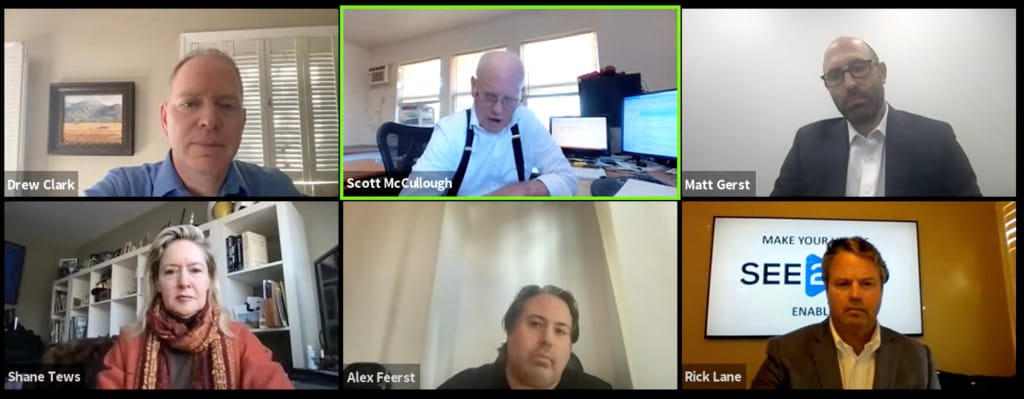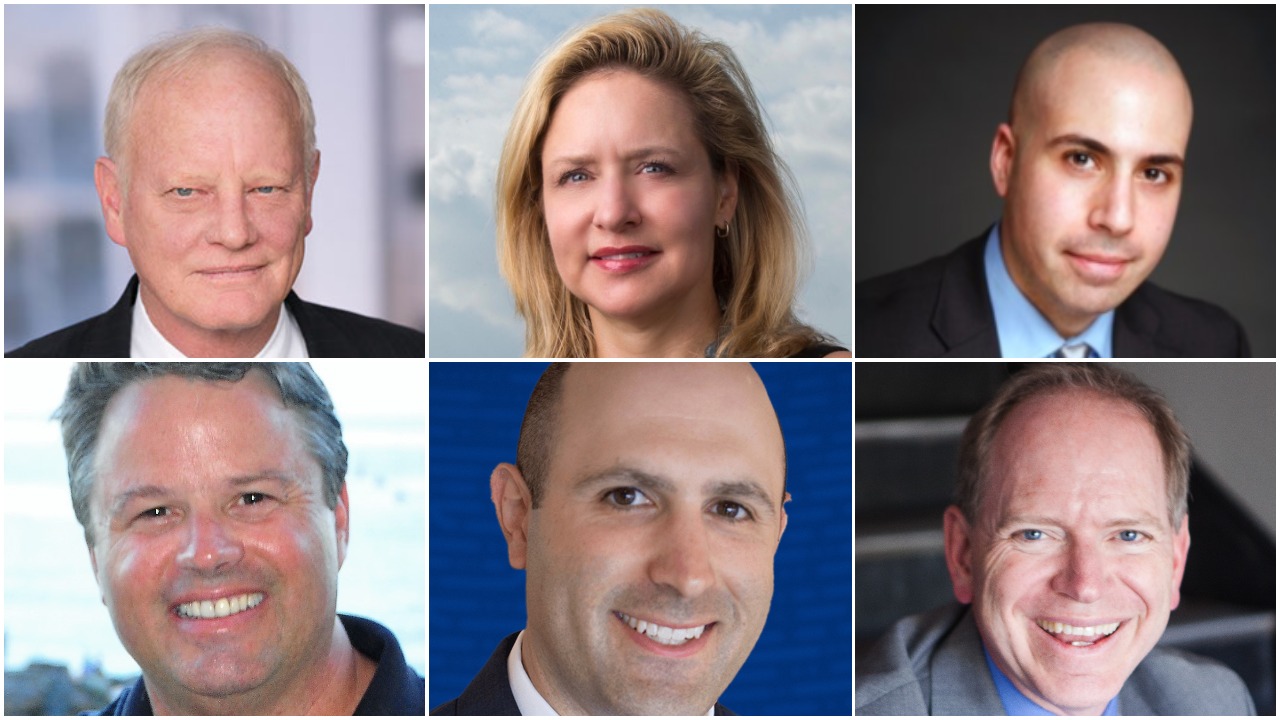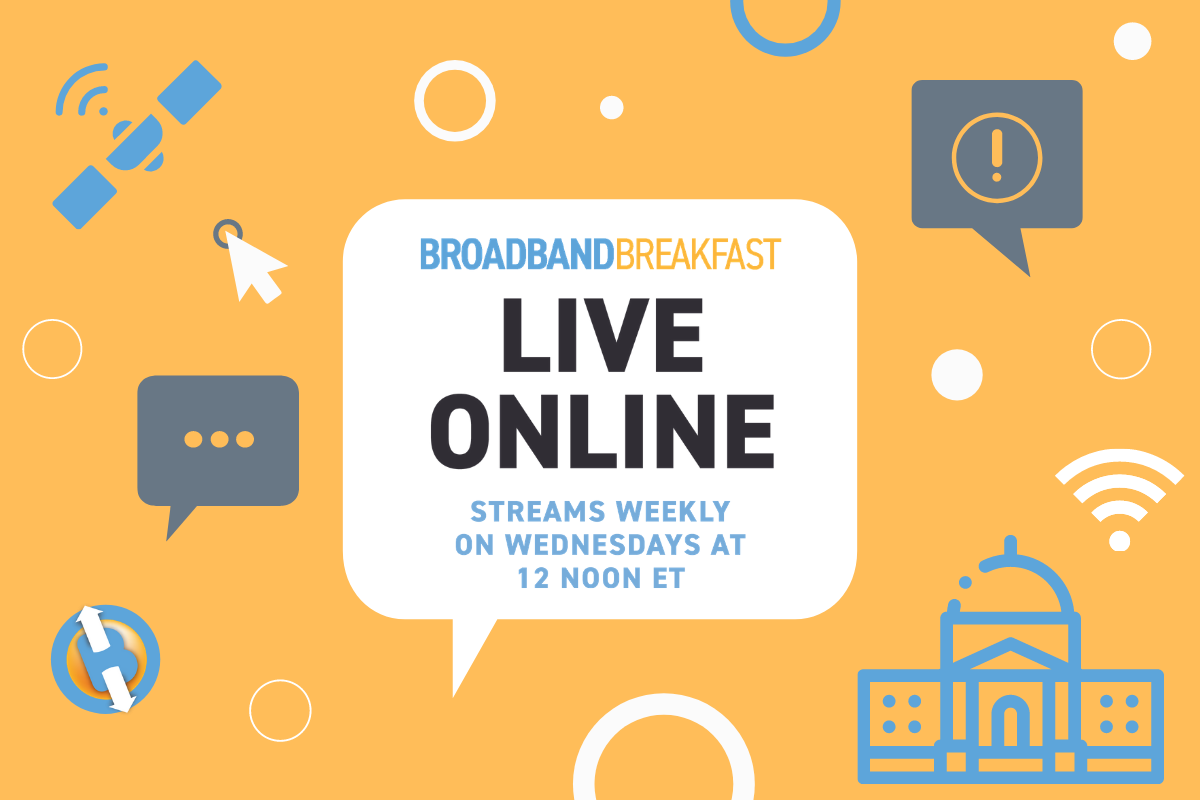Experts Warn Against Total Repeal of Section 230
Panelists note shifting definition of offensive content.
T.J. York

WASHINGTON, November 22, 2021 – Communications experts say action by Congress to essentially gut Section 230 would not truly solve any problems with social media.
Experts emphasized that it is not possible for platforms to remove from their site all content that people may believe to be dangerous. They argue that Section 230 of the Communications Decency Act, which shields platforms from legal liability with respect to what their users post, is necessary in at least some capacity.
During discussion between these experts at Broadband Breakfast’s Live Online Event on Wednesday, Alex Feerst, the co-founder of the Digital Trust and Safety Partnership, who used to work as a content moderator, said that to a certain extent it is impossible for platforms to moderate speech that is “dangerous” because every person has differing opinions about what speech they consider to be dangerous. He says it is this ambiguity that Section 230 protects companies from.
Still, Feerst believes that platforms should hold some degree of liability for the content of their sites as harm mitigation with regards to dangerous speech is necessary where possible. He believes that the effects of artificial intelligence’s use by platforms makes some degree of liability even more essential.
Particularly with the amount of online speech to be reviewed by moderators in the internet age, Feerst says the clear-cut moderation standards are too messy and expensive to be viable options.
Matt Gerst, vice president for legal and policy affairs at the Internet Association, and Shane Tews, nonresident senior fellow at the American Enterprise Institute, also say that while content moderation is complex, it is necessary. Scott McCollough, attorney at McCollough Law Firm, says large social media companies like Facebook are not the causes of all the problems with social media that are in the national spotlight right now, but rather that social features of today’s society, such as the extreme prevalence of conflict, are to blame for this focus on social media.
Proposals for change
Rick Lane, CEO of Iggy Ventures, proposes that reform of Section 230 should include a requirement for social media platforms to make very clear what content is and is not allowed on their sites. McCullough echoed this concern, saying that many moderation actions platforms take presently do not seem to be consistent with those platforms’ stated terms and conditions, and that individual states across the nation should be able to look at these instances on a case-by-case basis to determine whether platforms fairly apply their terms and conditions.
Feerst highlighted the nuance of this issue by saying that people’s definitions of “consistent” are naturally subjective, but agrees with McCullough that users who have content removed should be notified of such, as well as the reasoning for moderators’ action.
Lane also believes that rightfully included in the product of Section 230 reform will be a requirement for platforms to demonstrate a reasonable standard of care and moderate illegal and other extremely dangerous content on their sites. Tews generally agreed with Lane that such content moderation is complex, as she sees a separation between freedom of speech and illegal activity.
Gerst highlighted concerns from companies the Internet Association represents that government regulation coming from Section 230 reform will require widely varied platforms to standardize their operation approaches, diminishing innovation on the internet.
Our Broadband Breakfast Live Online events take place on Wednesday at 12 Noon ET. You can watch the November 17, 2021, event on this page. You can also PARTICIPATE in the current Broadband Breakfast Live Online event. REGISTER HERE.

Wednesday, November 17, 2021, 12 Noon ET — The Changing Nature of the Debate About Social Media and Section 230
Facebook is under fire as never before. In response, the social-networking giant has gone so far as to change its official name, to Meta (as in the “metaverse”). What are the broader concerns about social media beyond Facebook? How will concerns about Facebook’s practices spill over into other social media networks, and to debate about Section 230 of the Communications Act?
Panelists for this Broadband Breakfast Live Online session:
- Scott McCullough, Attorney, McCullough Law Firm
- Shane Tews, Nonresident Senior Fellow, American Enterprise Institute
- Alex Feerst, Co-founder, Digital Trust & Safety Partnership
- Rick Lane, CEO, Iggy Ventures
- Matt Gerst, VP for Legal & Policy Affairs, Internet Association
- Drew Clark (moderator), Editor and Publisher, Broadband Breakfast
Panelist resources:
- Where is Our Intellectual Immune System?, by Alex Feerst in Cato Unbound
- A New Hope For Moderation And Its Discontents?, by Alex Feerst in Techdirt
- Your Speech, Their Rules: Meet the People Who Guard the Internet, by Alex Fierst in OneZero
- Content Moderation: Section 230 Of The Communications Decency Act, from Matt Gerst, by the Internet Association
- A Path Forward For Section 230, from Matt Gerst, by K. Dane Snowden of the Internet Association
- The Reality Of Revoking Section 230, from Matt Gerst, by Jon Berroya of the Internet Association
- Consumers Rely On Section 230 For Holiday Shopping, from Matt Gerst, by the Internet Association
- A co-author of Section on the law’s past, present, and future (with former Rep. Chris Cox), a podcast by Shane Tews from AEI
- Should Section 230 be reformed? (with Neil Fried), a podcast by Shane Tews from AEI
- Antiquated CDA 230 Immunity for TikTok Could Aid China’s Secret Efforts to Undermine U.S. Cyber-Security, by Rick Lane
- CDA 230, Frankenstein, Oppenheimer and the Social Dilemma, by Rick Lane
- Text of Section 230, “Protection for private blocking and screening of offensive material”
- On Regulating Social-Media Platforms, Follow Texas, Not Florida, by Clare Morell in National Review
- Broadband Breakfast Live Online Launches Series on Section 230: Separating Fact from Fiction, 3-Part Series in July 2020

W. Scott McCollough has practiced communications and Internet law for 38 years, with a specialization in regulatory issues confronting the industry. Clients include competitive communications companies, Internet service and application providers, public interest organizations and consumers.
Shane Tews is a nonresident senior fellow at the American Enterprise Institute (AEI), where she works on international communications, technology and cybersecurity issues, including privacy, internet governance, data protection, 5G networks, the Internet of Things, machine learning, and artificial intelligence. She is also president of Logan Circle Strategies.
Alex Feerst is a lawyer and technologist focused on building systems that foster trust, community, and privacy. He leads Murmuration Labs, which helps tech companies address the risks and human impact of innovative products, and co-founded the Digital Trust & Safety Partnership, the first industry-led initiative to establish best practices for online trust and safety. He was previously Head of Legal and Head of Trust and Safety at Medium, General Counsel at Neuralink, and currently serves on the editorial board of the Journal of Online Trust & Safety, and as a fellow at Stanford University’s Center for Internet and Society.
Rick Lane is a tech policy expert, child safety advocate, and the founder and CEO of Iggy Ventures. Iggy advises and invests in companies and projects that can have a positive social impact. Prior to starting Iggy, Rick served for 15 years as the Senior Vice President of Government Affairs of 21st Century Fox.
Matt Gerst is the Vice President for Legal & Policy Affairs and Associate General Counsel at Internet Association, where he builds consensus on policy positions among IA’s diverse membership of companies that lead the internet industry. Most recently, Matt served as Vice President of Regulatory Affairs at CTIA, where he managed a diverse range of issues including consumer protection, public safety, network resiliency, and universal service. Matt received his J.D. from New York Law School, and he served as an adjunct professor of law in the scholarly writing program at the George Washington University School of Law.
Drew Clark is the Editor and Publisher of BroadbandBreakfast.com and a nationally-respected telecommunications attorney. Drew brings experts and practitioners together to advance the benefits provided by broadband. Under the American Recovery and Reinvestment Act of 2009, he served as head of a State Broadband Initiative, the Partnership for a Connected Illinois. He is also the President of the Rural Telecommunications Congress.

WATCH HERE, or on YouTube, Twitter and Facebook.
As with all Broadband Breakfast Live Online events, the FREE webcasts will take place at 12 Noon ET on Wednesday.
SUBSCRIBE to the Broadband Breakfast YouTube channel. That way, you will be notified when events go live. Watch on YouTube, Twitter and Facebook.
See a complete list of upcoming and past Broadband Breakfast Live Online events.











Member discussion